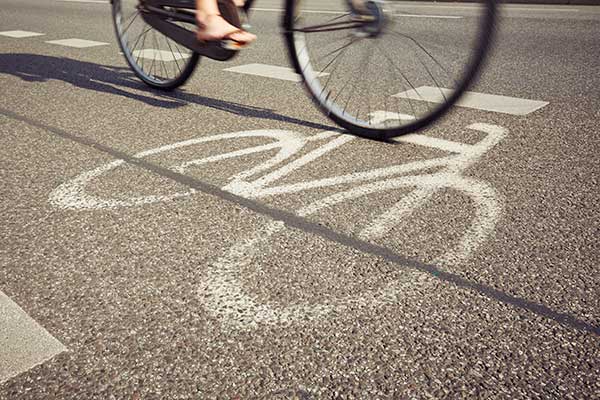Dealing with Mental Health as a Freelancer
- Published:
- Updated: January 30, 2020
Share this article:

Handling Mental Health as a Freelancer
Dealing with mental health as a freelancer is of paramount importance, especially when you are a one person show, working in isolation day in and day out. Taking care of your mental health is an ongoing process, that should never go unattended. Human beings are social creatures by nature, so when we take ourselves out of an environment where there’s regular social interactions (office), weird things start to happen to our psyche. This is my take on the subject, from someone who has dealt with mental health issues in the past and has a family history of mental health issues.
Dealing with Mental Health as a Freelancer

Taking care of your mental health as freelancer is far more important than when you are working in a regular office environment (at least, in my opinion). As mentioned previously, we are social creatures by nature. When you commit to this type of work, is essential that you find structure, otherwise your day-to-day routine can become overwhelming.
Before I continue, it’s probably best if I give you a little bit of background on my family history and my own “encounters” with mental health issues. Growing up, probably like any other kid raised in the 80s, I naively thought that mental health issues were reserved for people struggling with extreme cases, i.e. schizophrenia, dementia, split personality disorder, etc. Above all, I wasn’t even familiar with depression or what the symptoms for that looked like. In hindsight, my younger brother showed some of the symptoms that we are all familiar with today. However, like any other person struggling with depression, he was very good at masking the real root of the problem. Needless to say, it shocked our family to the core when he finally decided to commit suicide in 1996; at the time he was just 21 years old.
Life Truly Is a Roller Coaster
My brother’s death brought about its own set of mental health issues for the rest of our family. In addition to the deep sadness that our family was thrown into, my coping mechanism turned to anger. I was angry with my brother and angry with myself for not being able to help him avoid such a drastic decision. It took a very long time for me to accept what had happened and that there wasn’t much I could’ve done to stop it. I guess that’s the burden that all family members of a suicide victim put on ourselves, feeling as if we had failed them in a big way.
Fast forward to 2013, which is when I had what I can best describe as a panic attack. I was stuck in a job I really didn’t enjoy all that much, and it was just the latest in a series of mismatched positions that I had only taken for the paychecks attached to them. Driving to work that day, I was feeling somewhat agitated (more so than usual, when dealing with your morning commute in city traffic) and as I got closer to the office, I started to breathe a little heavier. By the time I had parked my car, I was in full panic mode and breathing heavily, as in one of my asthma attacks when I was a little kid. I couldn’t bring myself to get out of the car, so my logical decision was to drive away and go home. As I got back on the highway, everything was back to normal. That was the wake up call that prompted me to take control of my own destiny and become a freelancer. Oh, in case you are wondering, I never went back to that office.
The Allure of Freelance Work
When you first think of being a freelancer, you only consider the advantages of being your own boss. However, no one ever tells you about the toll it might take on your mental health. In other words, the very thing you are chasing, might actually be hazardous to your health. Before we get into the dark side of freelance work, let’s consider the advantages of working on your own.
- You make your own hours.
- More work-life balance.
- More time for vacations with your loved-ones or on your own.
- Your income is only limited by how hard you want to work.
- Don’t have to deal with office politics or small talk with colleagues ( I might be alone on this one).
Freelance Work Takes a Toll on Mental Health
Freelance work does sound appealing, for many reasons, but there’s also a dark side that a lot of people fail to mention. In my particular case, getting started and finding clients was highly stressful and became an all-consuming endeavor. In addition, that need to find work led me to drop all other interests/hobbies, which was a huge mistake.
The toll on my mental health didn’t become apparent right away, but I started to notice little things here and there. The most visible change was actually physical, as I gained 30 pounds (in the span of 2 years) due to the fact that I was not cycling anymore (which I had done since I was in my early 20s). The second thing to go was my patience, which I noticed immediately. I wasn’t snapping at people or anything like that, but I found myself getting frustrated very easily and often. In other words, if you think you are a healthy and happy person but want to test your resilience, then freelancing is the perfect test for you!
Two years into my freelancing journey, I was finally getting some traction. I was lucky enough to find three ongoing clients, which in my head, justified all the hard work I had done to that point. However, at that point in time, I also came to the realization that something had to change. Long days in front of the computer couldn’t continue to be the norm, because that could set me up for another panic attack.
Adding That Work-Life Balance Into The Mix

Dealing with mental health as a freelancer is not an easy task. That promise of work-life balance is almost impossible to maintain when you are getting started. In addition, you continue to question if your are doing enough, even when you are successful.
I can’t recommend a magic formula that will work for anyone, as that would be naive and irresponsible on my part. However, I can tell you what worked for me and how I’ve managed to incorporate it into my daily routine.
In 2016, three years after I had embarked on my journey as a freelancer, I decided to make a change. First of all, I took up cycling again and it completely transformed my daily disposition. That sport had become such an integral part of my life since my 20s, that when I took that away, I had inadvertently triggered a mild depression. The second thing that made a world of difference, was to incorporate more breaks throughout the day. The final step was to adopt office-like working hours and sticking to 8 hours a day instead of 10 or 12. Adding those 3 things to my daily routine was the change that I needed to change my attitude and become more enthusiastic towards the inherent challenges of freelance work.
The Naked Truth About Freelance Work and Mental Health
If you think freelance work is definitely for you, don’t let me stand in your way, but first let me tell you why it’s not all that it’s cracked up to be. Are you a social butterfly who enjoys engaging people in conversation? You can still be a freelancer, but you might not want to work from home. Are your weekends sacred to you? You might find yourself working on weekends as a freelancer more often than you ever did when you worked for a company. However, the toll on your mental health might be the ultimate detriment. Here’s a list of the things you can look forward to (try to avoid them early on) as a freelancer:
- Long hours (10-12 hours on average) when getting started.
- Working in isolation (if you are working from a home office).
- Not a whole lot of time left for hobbies or other interests.
- Sleepless nights.
Mental Health is No Joke
Like I said previously, I’m not naive or irresponsible enough to think that my advice in this article can work miracles for everyone. This is just my story and how I dealt with it. Case in point, the same isolation that might trigger mental health issues for some people, provided me with enough clarity to identify symptoms that were not apparent when I was surrounded by people. In other cases, you might need to seek professional help in order to better address your situation. Forget about the stigma and reach out today!
